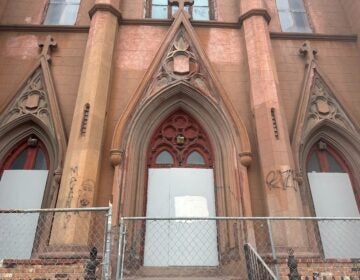Marion Johnson

Marion Johnson
Age: 74.
Education: Attended William Penn High School.
Professional: Legislative aide to Councilwoman Marian Tasco since 1988, assigned to zoning issues. Meets with constituents, zoning applicants, committees and ward leaders, examines sites and the specifics of proposals and reports back to Tasco. She represents Tasco at Zoning Board of Appeals meetings, and has dealt with the Board under three different chairs.
Community/Volunteer: Block captain since 1977; Founder of Concerned Citizens of Olney-Logan; Second Vice-chair of the Democratic Committee in the 49th Ward; Member of the Barrett Recreation Center Advisory Council.
Personal: Married for 53 years until she was widowed; Mother to five adult daughters, one deceased, and two sons-in-law; grandmother to 8, and great-grandmother to 5.
Life-long Philadelphia resident.
Neighborhood: Logan.
Appointer: Councilwoman Marian Tasco.
Q&A
Why is zoning reform important to you? Zoning is extremely important because it can make or break the character of your neighborhood. If zoning is done property, when people come into our city, they will be able to identify – easily – the commercial corridors, the residential corridors, the industrial corridors, because you’ll find those appropriate uses located in certain areas. We (the Zoning Code Commission) will look at what’s outdated, and we will look at what’s compatible based on how that land use is designated. If we do our jobs properly, the new zoning code will actually help to revitalize our neighborhoods. It will make sure that the uses in a particular area are appropriate for that area.
Why are you a good choice for this commission? I think that certainly the councilwoman selected me because of my exposure, throughout her whole district (which includes Mt. Airy, Logan, East Oak Lane, West Oak Lane and Lawncrest). She knows that I’m very serious about zoning and I realize that zoning is a land use issue that can have an impact all over the district that’s either positive or negative.
I’ve been very firm when we’ve taken a position, and I also try to educate (people who are not familiar with zoning). I don’t see my role as just standing before the board and arguing the councilwoman’s position – why she is saying yes or no. Sometimes I have to say, ‘No, excuse me. Mr. Chairmain, I beg to differ. With all due respect, this is not what’s happening at this location, this is not what’s happening to those neighbors. This is greatly affecting their quality of life.’
I also feel that I’ve just about lived through it all (when it comes to zoning), working all these years from ’88.
What is the most pressing zoning issue Philadelphia faces? One of the most pressing issues is some of the negative things that are located on the corner, commercial property of residential blocks. Sometimes the disruption brought in by some businesses that can currently be approved on the corners creates a not-healthy living condition and quality of life for the neighbors.
(For example) some take-out places. We need to lean more toward family-oriented, go-in and sit-down and enjoy your meal (types of places). A lot of take-out places have long hours – until 2 a.m. The residential people are in bed sleeping. They are waiting to go to work the next morning. But there are people who pull up with their music blasting. There are guys who stand outside. And in the morning, the residents have to deal with trash and the containers that come with that type of business.
I’m hoping that through the reform process, we lean more toward stabilizing the block, and putting more family-oriented uses in the neighborhoods.
What should be done to address this issue? (This is just one issue.) The bottom line is, we’re revisiting the codes and all of that right now. So I think what the board is going to have to do, look at what the commission members are really saying, and do evaluation of (all of) that.
I’m hoping that just like I gave that one example, that there will be others (brought forward by the other commissioners) so that when we do reform, it will make an impact. The other examples will make a whole pie – if we just fix one or two pieces, we’ll go away with the same problems. This is so serious, we can’t just put a Band-aid on it.
WHYY is your source for fact-based, in-depth journalism and information. As a nonprofit organization, we rely on financial support from readers like you. Please give today.






